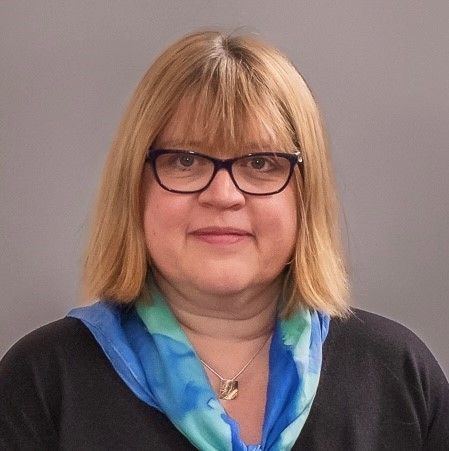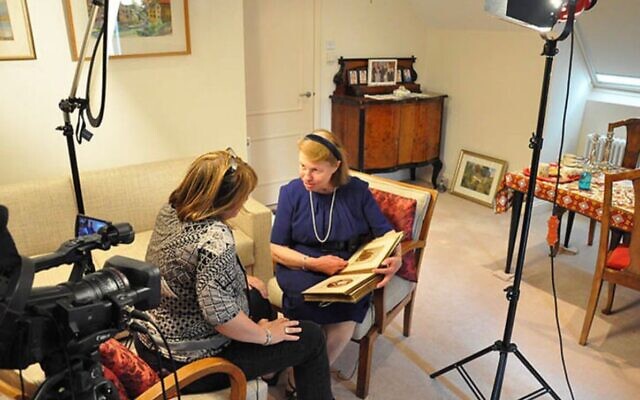OPINION: Why does Holocaust testimony matter?
With denial and distortion on the rise, the words of the eye-witnesses have gained even more significance
Ahead of an international forum on Holocaust testimonies, Dr Bea Lewkowicz, director of the Association of Jewish Refugees’ Refugee Voices Archive, stresses the importance of different cultural and memorial contexts to how the next generation confronts the history of the Shoah.
When Rishi Sunak, shortly before Holocaust Memorial Day in January, announced that parliament will soon legislate to build the Holocaust Memorial and Learning Centre, my first thought was about the many survivors and refugees who I had interviewed in the last 20 years, for the AJR Refugee Voices Archive and how pleased they would be to hear this pledge from the current Prime Minister to memorialising the Holocaust.
The testimony of one particular interviewee, the journalist John Izbicki, came to mind. He recalled, as an eight-year-old boy in Berlin, he had watched from the window how Nazi storm troopers ransacked his parents shop in the evening of the November pogrom (Kristallnacht).
Knowing his parents were in the shop, he shouted and cried uncontrollably. His parents survived and the family made it to safety in the UK, but his vocal cords had been severely affected and his voice was permanently changed as a consequence.

When Holocaust testimony moves to the political centre stage, voices like that of John Izbicki will have a strong presence.
Next month, The Association of Jewish Refugees (AJR), together with the government and the German embassy, is organising the International Forum on Collecting, Preserving and Disseminating Holocaust Testimonies.
The gathering will offer a chance to reflect upon and confront the history and dissemination of Holocaust testimony and the challenges facing us in the future.
We will present a range of topics, to be discussed by thought leaders, including Daniel Finkelstein OBE and Jonathan Freedland, Dan Stone and James Bulgin, and Dov Forman. We will also be joined by survivors Eva Clarke BEM and Jackie Young, and Kurt Marx BEM, who came to the UK on a Kindertransport.
Why is it critical now to think about Holocaust testimonies?
Broadly speaking, the capturing and dissemination of testimonies shape a variety of agents and environments: a) the interviewee and their families b) the academic ‘users’ of testimonies and their areas of research and c) the broader educational and learning fields (use of testimonies in schools, digital and non-digital learning platforms, local museums, televisions and documentary productions, exhibition installations).
In recent years, with Holocaust denial and distortion on the rise, the words of the eye-witnesses have gained even more significance.
For some years now, most institutions dealing with Holocaust testimonies, have been thinking about the future of Holocaust education without survivors. Different institutions and groups have developed new resources or interactive recordings, which respond to the questions of the viewer.
Some organisations have trained second and third generations to tell the stories of their parents or grandparents. However, we need to be clear about the limitations and challenges of new media as well as those aspects of the original oral histories in supplying vital communicative signals and contexts.
Now that there is a very high chance that testimonies will be high on the political and media agenda, the Forum’s focus on the past and future of Holocaust testimonies is very timely.
By understanding how Holocaust testimonies have been collected and displayed over time and in different cultural and memorial contexts, we can create an important dialogue, which will ensure that the stories of all British Holocaust survivors and refugees, such as John Izbiki’s, will be represented.
My hope is that future generations will learn about individual stories of survival and gain an understanding of the medium of Holocaust testimony itself, underlining its important role in enabling us to follow John Izbicki’s clear message from the end of his interview: ‘Look back to the past and don’t let it become the future’.
This is why Holocaust testimony matters.
- The Association of Jewish Refugees (AJR) is holding its International Holocaust Testimony Forum on April 19 & 20 at Lancaster House – focusing on collecting, preserving and disseminating Holocaust testimonies. Book your tickets here.

Thank you for helping to make Jewish News the leading source of news and opinion for the UK Jewish community. Today we're asking for your invaluable help to continue putting our community first in everything we do.
For as little as £5 a month you can help sustain the vital work we do in celebrating and standing up for Jewish life in Britain.
Jewish News holds our community together and keeps us connected. Like a synagogue, it’s where people turn to feel part of something bigger. It also proudly shows the rest of Britain the vibrancy and rich culture of modern Jewish life.
You can make a quick and easy one-off or monthly contribution of £5, £10, £20 or any other sum you’re comfortable with.
100% of your donation will help us continue celebrating our community, in all its dynamic diversity...
Engaging
Being a community platform means so much more than producing a newspaper and website. One of our proudest roles is media partnering with our invaluable charities to amplify the outstanding work they do to help us all.
Celebrating
There’s no shortage of oys in the world but Jewish News takes every opportunity to celebrate the joys too, through projects like Night of Heroes, 40 Under 40 and other compelling countdowns that make the community kvell with pride.
Pioneering
In the first collaboration between media outlets from different faiths, Jewish News worked with British Muslim TV and Church Times to produce a list of young activists leading the way on interfaith understanding.
Campaigning
Royal Mail issued a stamp honouring Holocaust hero Sir Nicholas Winton after a Jewish News campaign attracted more than 100,000 backers. Jewish Newsalso produces special editions of the paper highlighting pressing issues including mental health and Holocaust remembrance.
Easy access
In an age when news is readily accessible, Jewish News provides high-quality content free online and offline, removing any financial barriers to connecting people.
Voice of our community to wider society
The Jewish News team regularly appears on TV, radio and on the pages of the national press to comment on stories about the Jewish community. Easy access to the paper on the streets of London also means Jewish News provides an invaluable window into the community for the country at large.
We hope you agree all this is worth preserving.






















